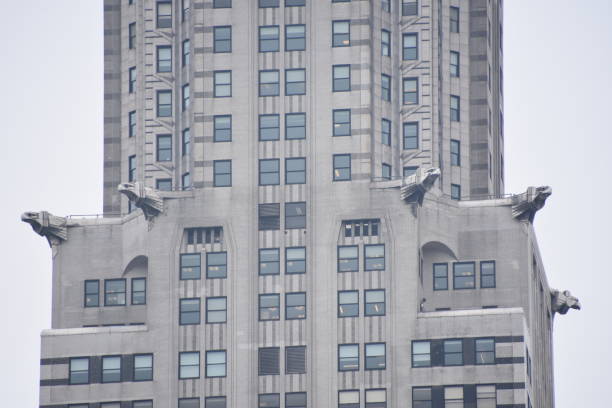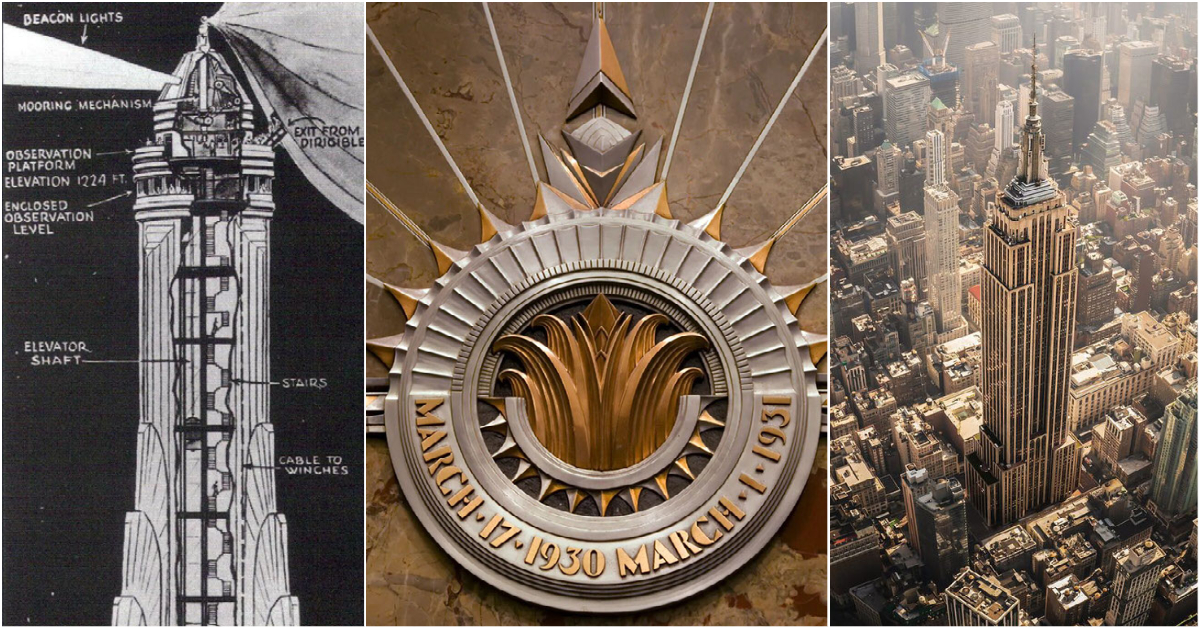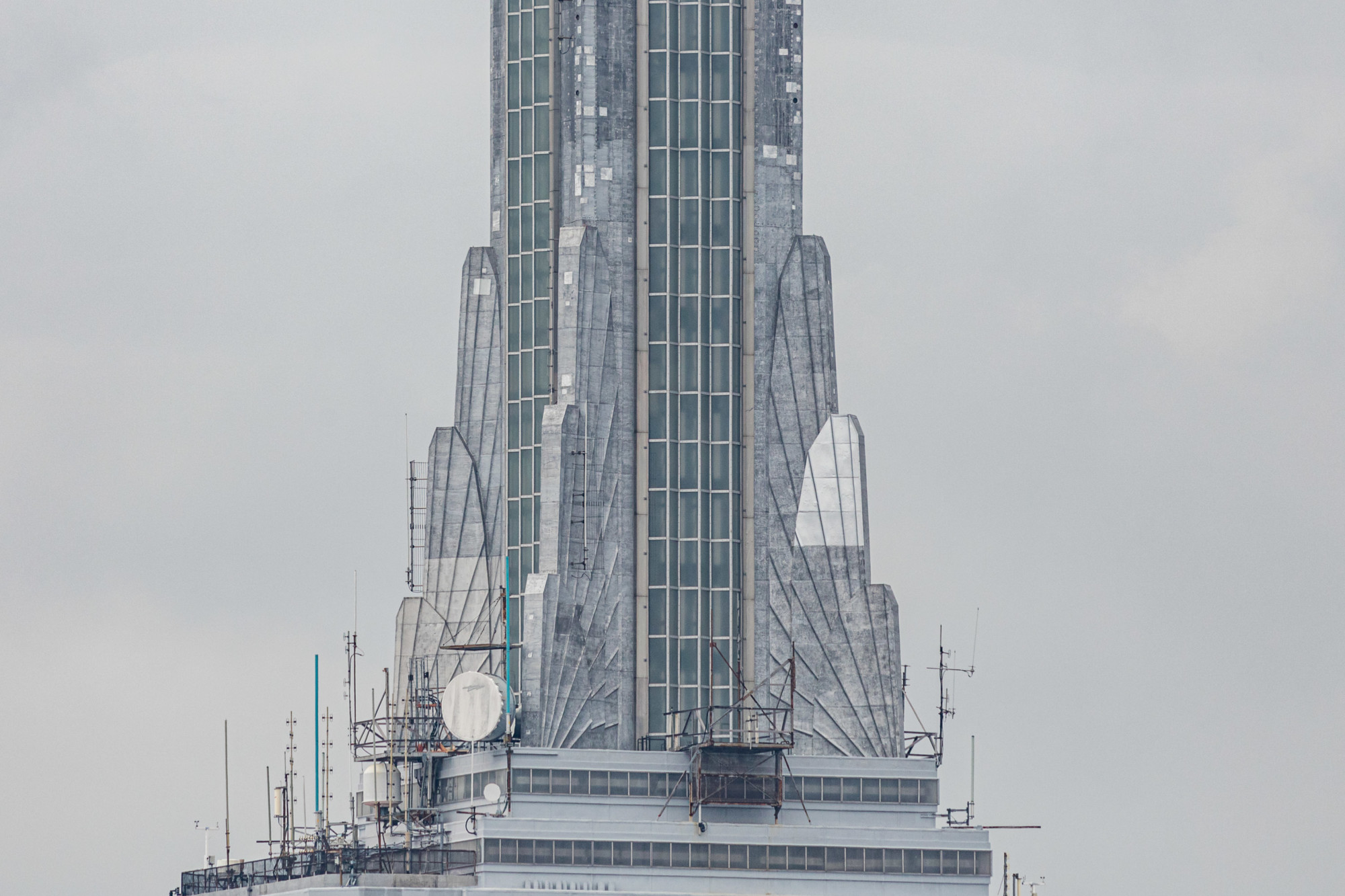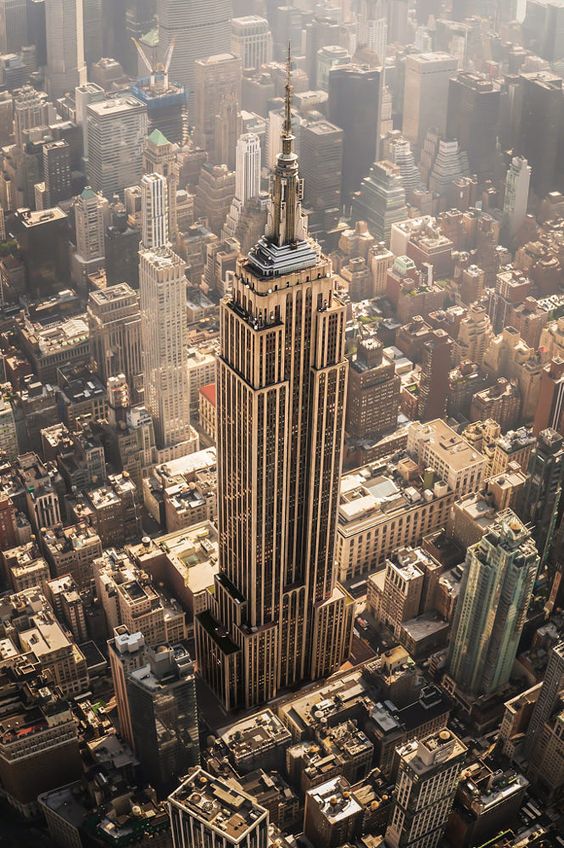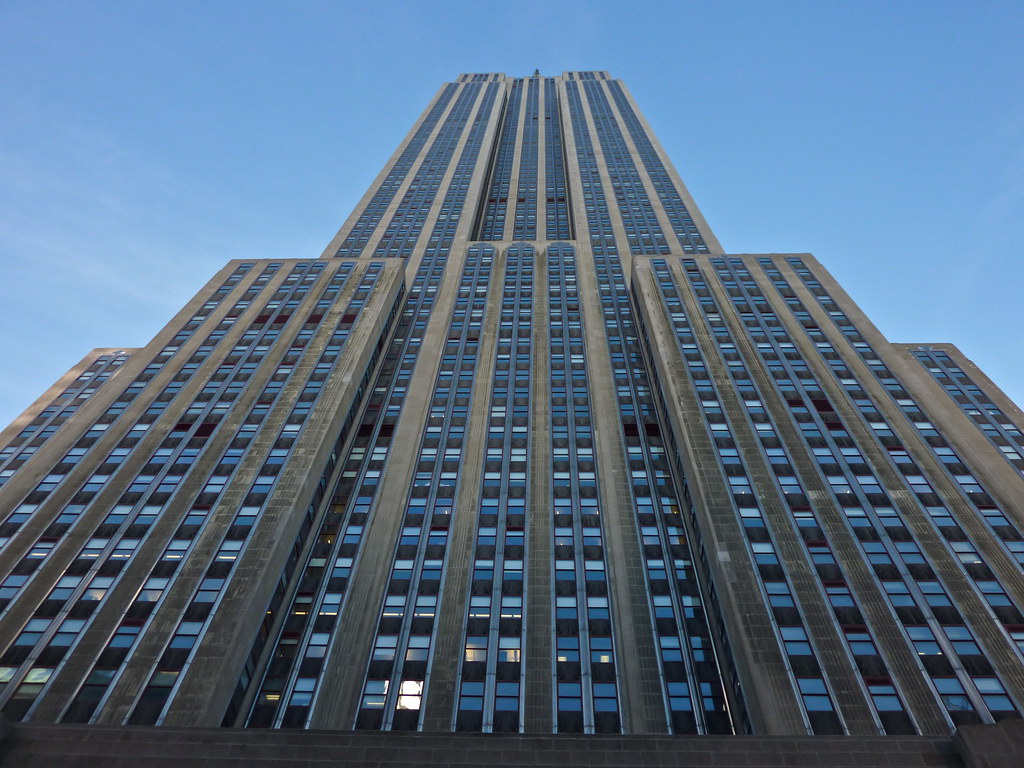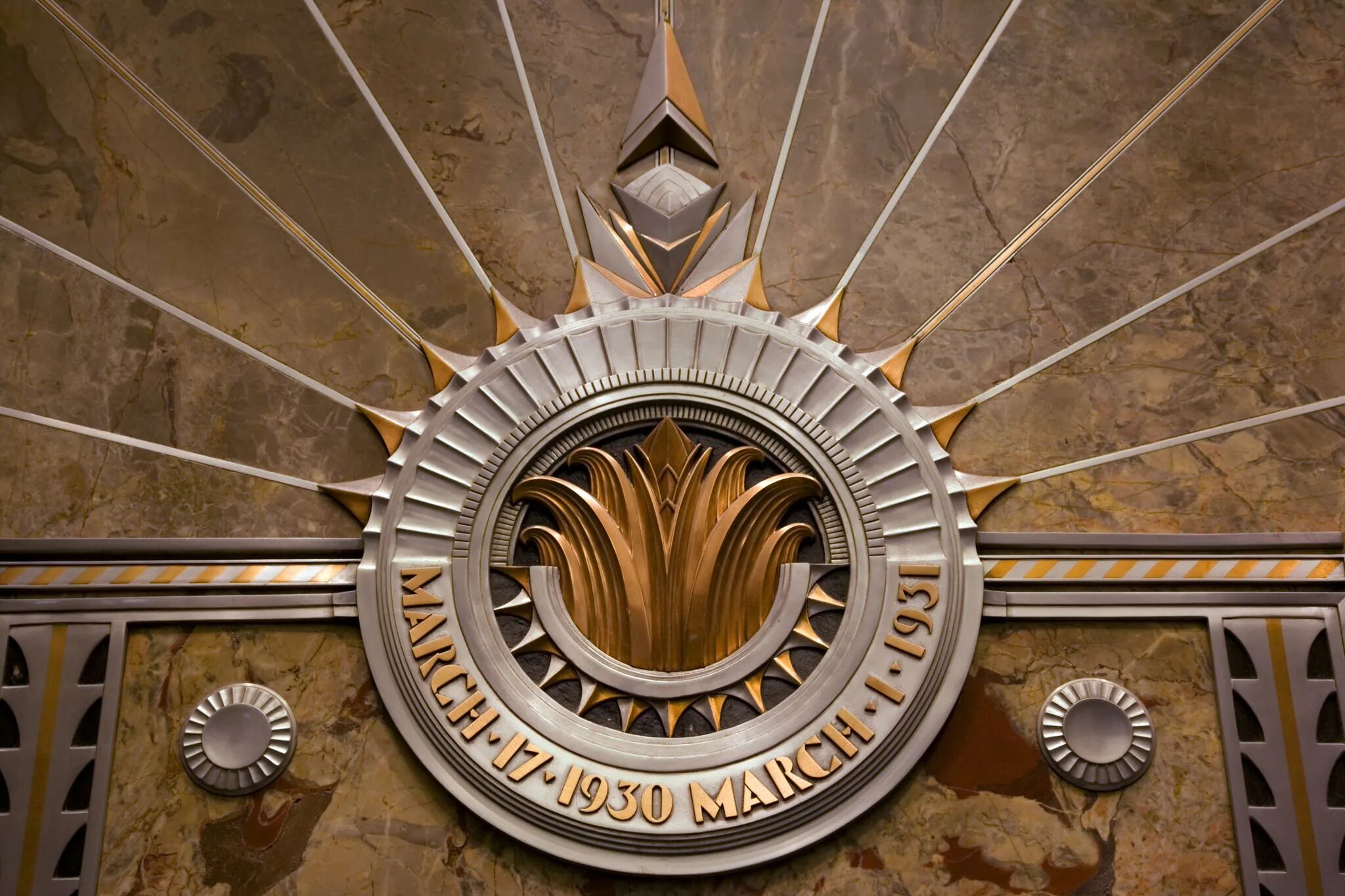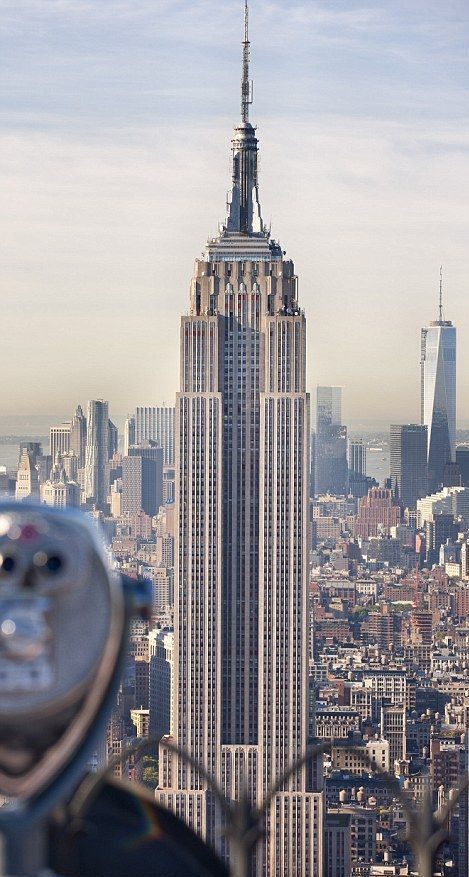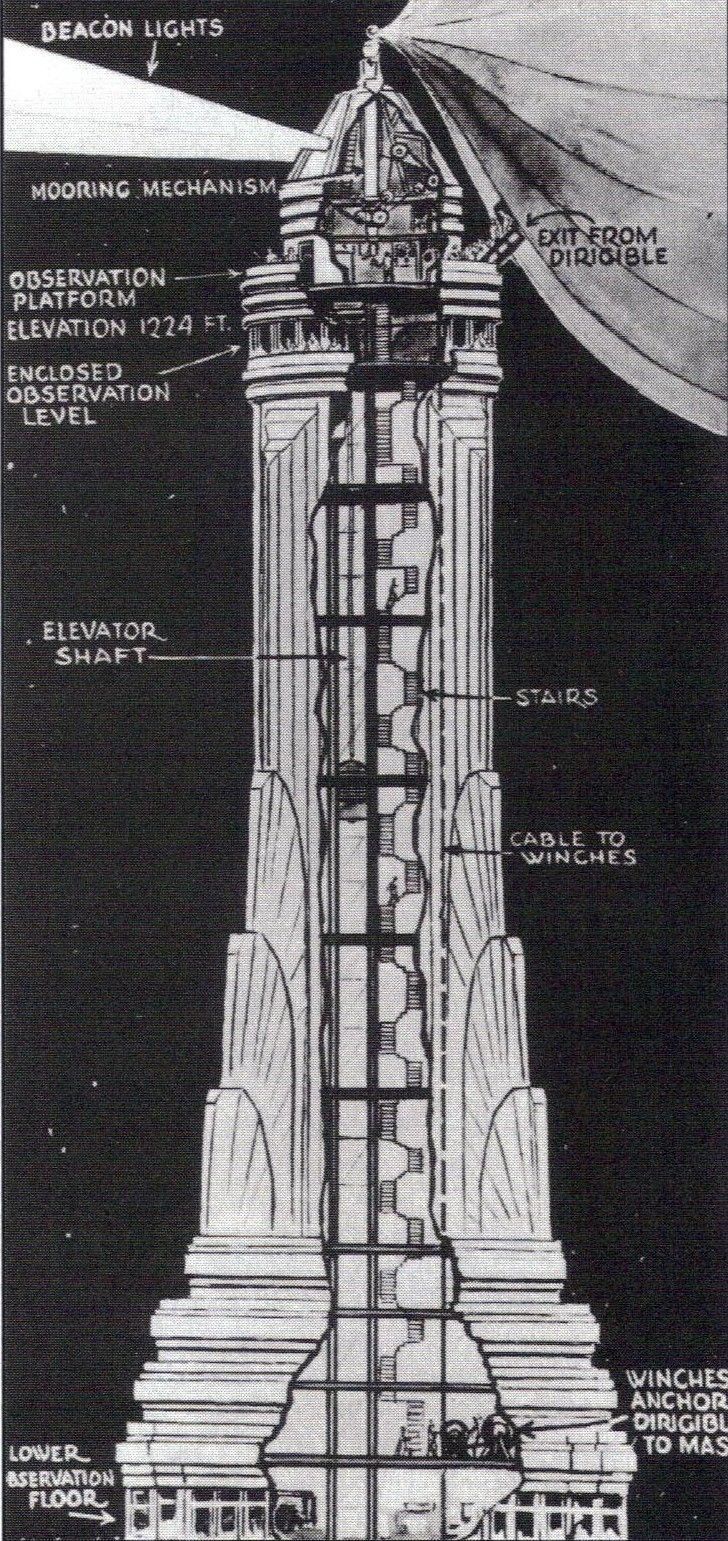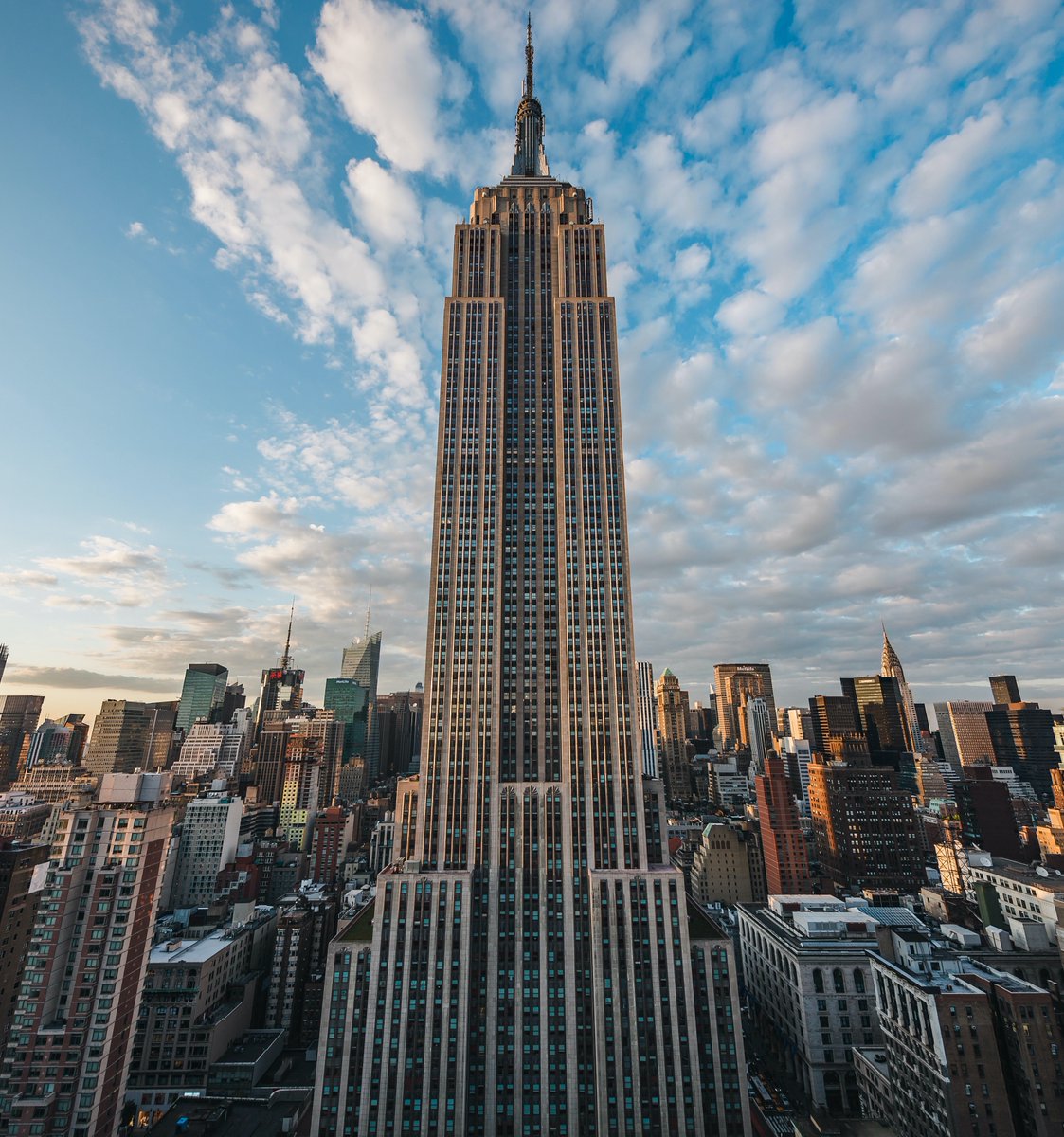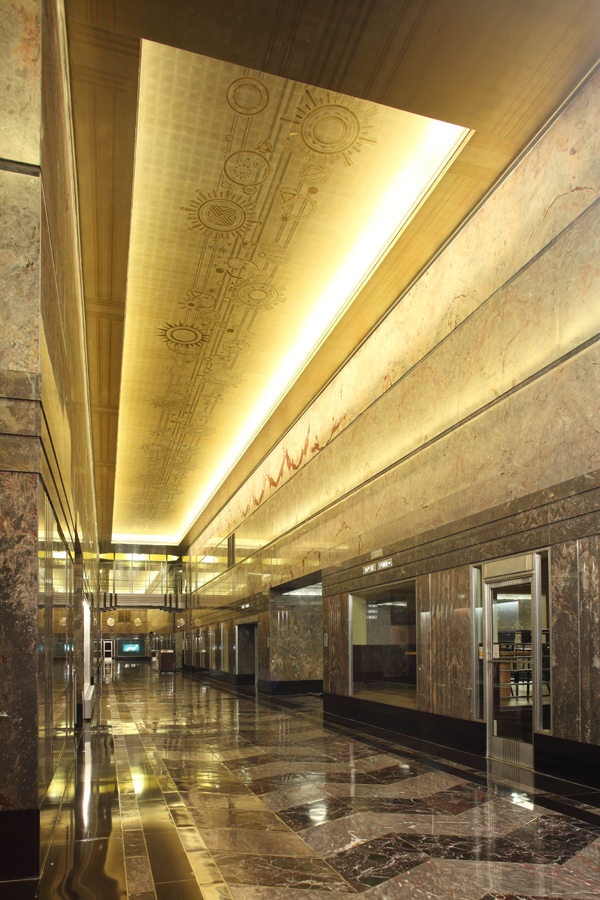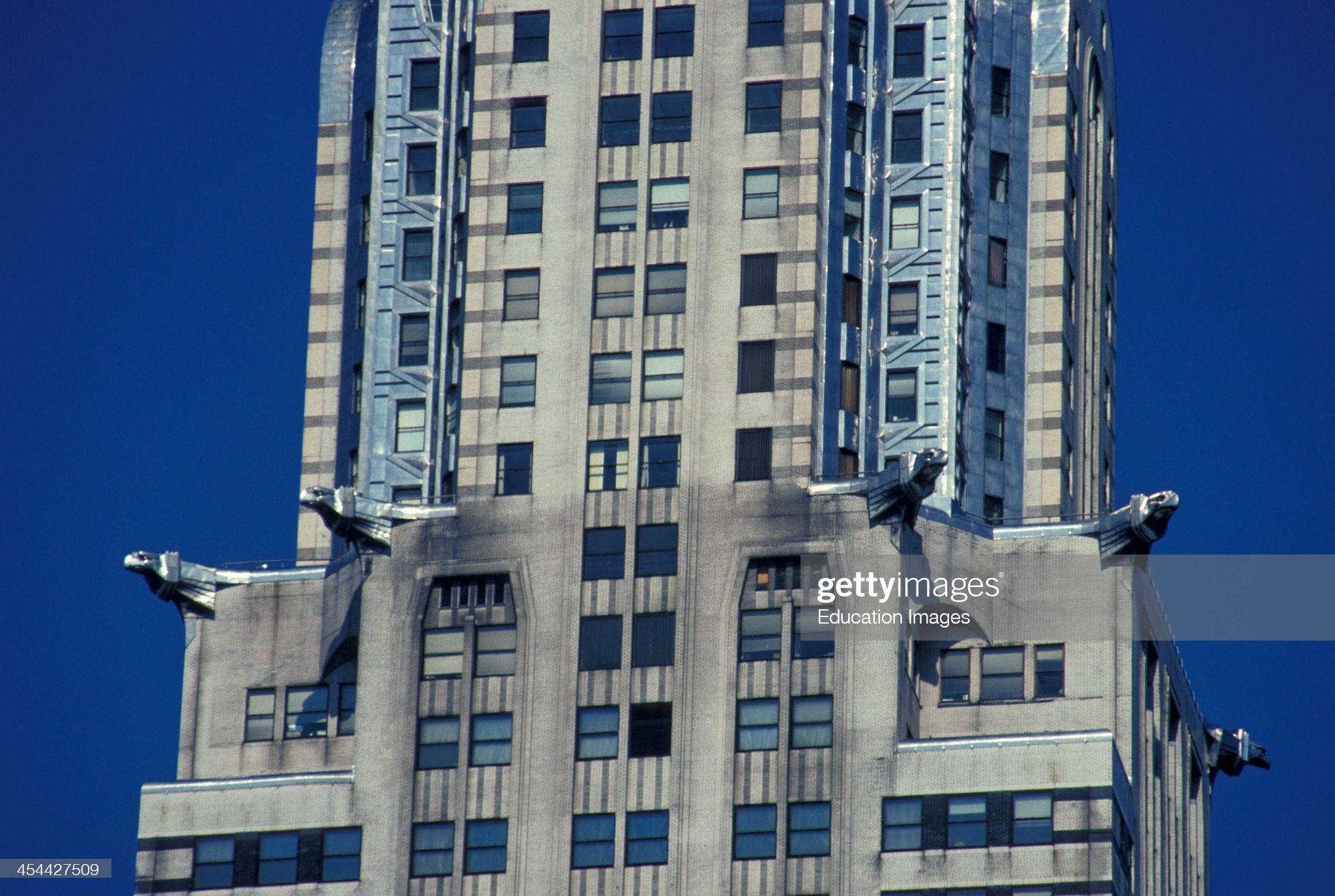In a city that is known for its skyline of remarkable skyscrapers, the Empire State Building built 90 years ago is standing tall, still acting as the art deco masterpiece it has always been and still attracting tourists from all over the world to visit one of United State’s most known architectural features.
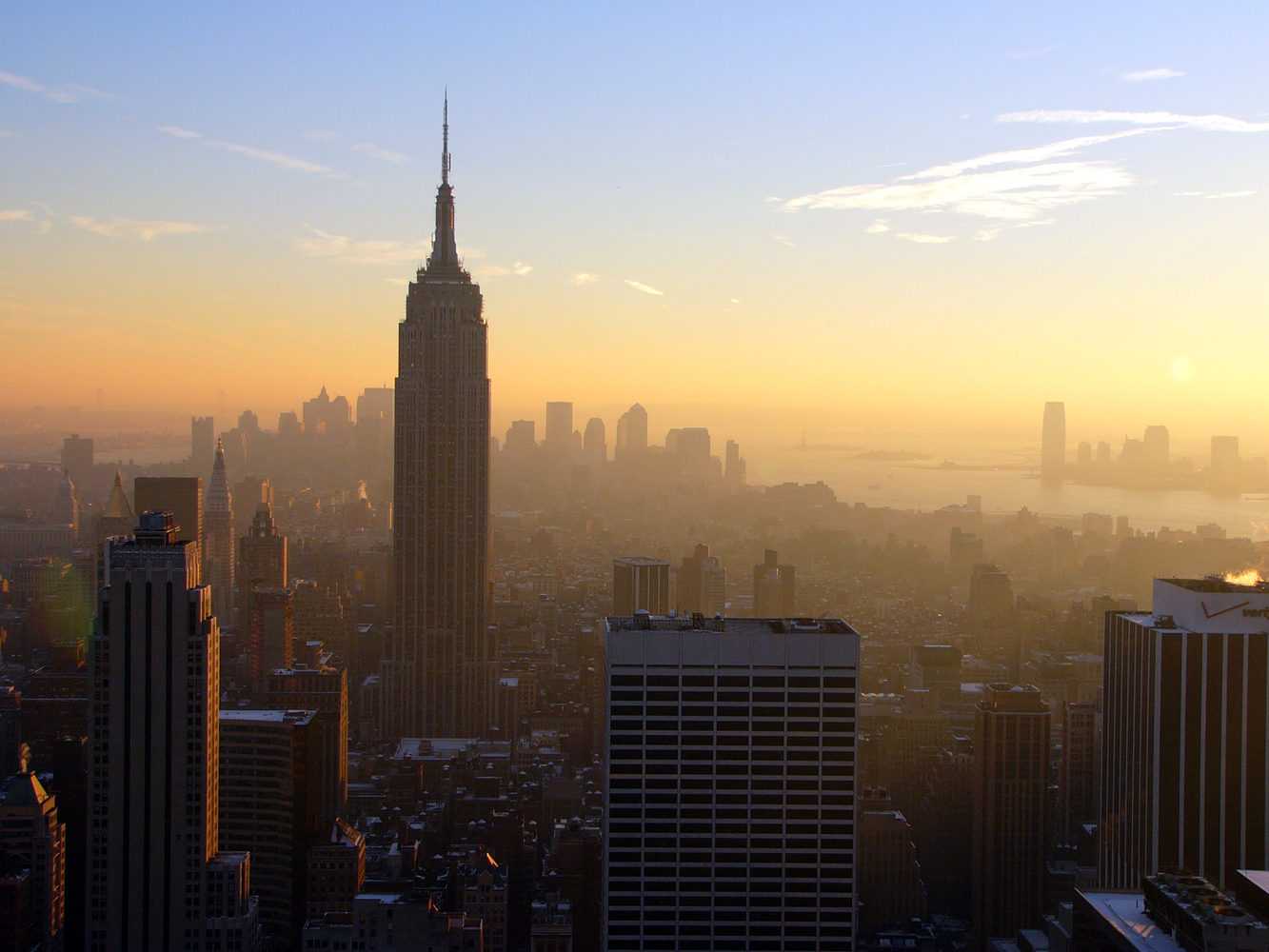
The Empire State Building (2005). Image © Wikimedia user robertpaulyoung (licensed under CC BY-SA 2.0)
The Empire State Building is a 102-story Art Deco skyscraper in Midtown Manhattan in New York City, United States. It was designed by Shreve, Lamb & Harmon and built from 1930 to 1931. Its name is derived from “Empire State”, the nickname of the state of New York.
The building has a roof height of 1,250 feet (380 m) and stands a total of 1,454 feet (443.2 m) tall, including its antenna. The Empire State Building stood as the world’s tallest building until the construction of the World Trade Center in 1970; following the latter’s collapse in 2001, the Empire State Building was again the city’s tallest skyscraper until 2012.
As of 2020, it is still one of the world’s tallest buildings. “The building is the seventh-tallest building in New York City, the ninth-tallest completed skyscraper in the United States, the 49th-tallest in the world, and the sixth-tallest freestanding structure in the Americas.”
Is the Empire State Building considered Art Deco?
The Empire State Building is famous for its iconic design, but where exactly does this design fall within the history of architecture? At its most basic, the Empire State Building was completed in the style called Art Deco, which was influential between roughly 1920 and 1939.
Art Deco was a modernist style, meaning it focused on traits unique to the 20th century over stylistic traditions of the past. It plays with modern materials, such as steel and plate glass, and incorporates elements of architectural traditions from around the world into an original style.
Perhaps the most striking aspect of art deco, however, is its flair. The Art Deco style is defined by a high level of ornamentation, generally in bright, metallic colors, that features sunbursts, zigzags, and other dramatic shapes that often have a graphic, flattened appearance.
Why is the Empire State Building Art Deco?
-
The Art Deco Sky Scraper’s Form Borrows from Other Civilizations
The higher the Empire State Building rises, it moves away and sets back from the street—the final envelope of the skyscraper takes a pyramid-like form with receding levels. This approach to high-rise buildings is known as Ziggurats and can be found in the Mesopotamian Civilizations.
Ziggurats were frequently approached during the Art Deco movement for two main reasons: during the time, the New York zoning commission gave precise instruction for the buildings to keep a distance from the street as they grew in height; and Art Deco artists and architects actually loved borrowing elements of architectural traditions from around the world and incorporating them into their original style.
-
The Empire State Building Combines Industrial and Traditional Materials
Combining traditional materials with modern and industrial materials is typical of Art Deco architects—the motive behind this is that they wanted to give their architecture a more luxurious appearance. The Empire State Building is such a perfect example of this approach; the exterior of the Empire State Skyscraper is composed of 200,000 cubic feet of Indiana limestone and granite, 10 million bricks, and 730 tons of aluminum and stainless steel!
Limestone and granite are known as the materials of classical architecture, while aluminum and stainless steel were the materials during the time the Art Deco masterpiece was built.
-
The Lobby is an Art Deco Masterpiece itself
The lobby of the Empire State -that you can actually enter ticket-free- is one of New York City’s art deco landmarks. It has a 24-karat gold and aluminum leaf mural on the ceiling, where lines of gears are put together in homage to the mechanical age. Another art deco feature is the medallions; three medallions were placed above the entrance door inside the Empire State Building—Electricity, Masonry, and Heating all commemorate the new technology used to complete the construction of the building in the art deco style.
Moreover, On the wall above the information desk in the Fifth Avenue lobby, there’s the famous depiction of the Empire State Building, with beams of light radiating from the mooring mast.
Besides the stainless steel gargoyles that appear before the skyscraper steps back, on top of the entrance of the Empire State we can find two sculptured eagles. “The Art Deco artists loved to take much of their inspiration from Egyptian and ancient Greek figures, which were then stylized and adapted to their modern design conception.”
The arrogance that informs the design of Art Deco style, American Eagles that frame the “EMPIRE STATE” at ground level, speaks for themselves. American eagles are the symbols of the American nation, strength, and freedom. And Empire State means New York. It is the combination of the way it looks and the way it means for people.
-
The Empire State Building‘s Facade Uses Vertical Lines for a Reason
The vertical geometry in the skyscraper’s facade drawn by the windows’ frames is actually an art deco feature, as well. “Art Deco architects made use of marked horizontal and vertical lines.” This linearity in style in art deco buildings is different from preceding architectural styles that featured more elaborate details and artistic ornaments. The verticality in the Empire State’s exterior leads our eyes to the mooring mast on the top of the skyscraper—which is an art deco feature, too, for sure!
-
The Flowy Mooring Mast is Surely an Art Deco Feature
The Empire State Building’s mooring mast was designed to act as a dock for dirigibles, or airships, who would be able to moor themselves to the top of the tower’s crown and load or unload passengers—apart from the reasoning behind this -which is extremely dangerous and kind of against all logic-, the streamlines form of the mooring mast shows an art deco inspired geometry.
Art Deco is one of those rare design styles that feature elements and inspiration that seem oddly out of place. You’ll find nods to archaeology like arches and ziggurats in the same design that incorporates machine-related elements like streamlined forms and aerodynamic curves.
